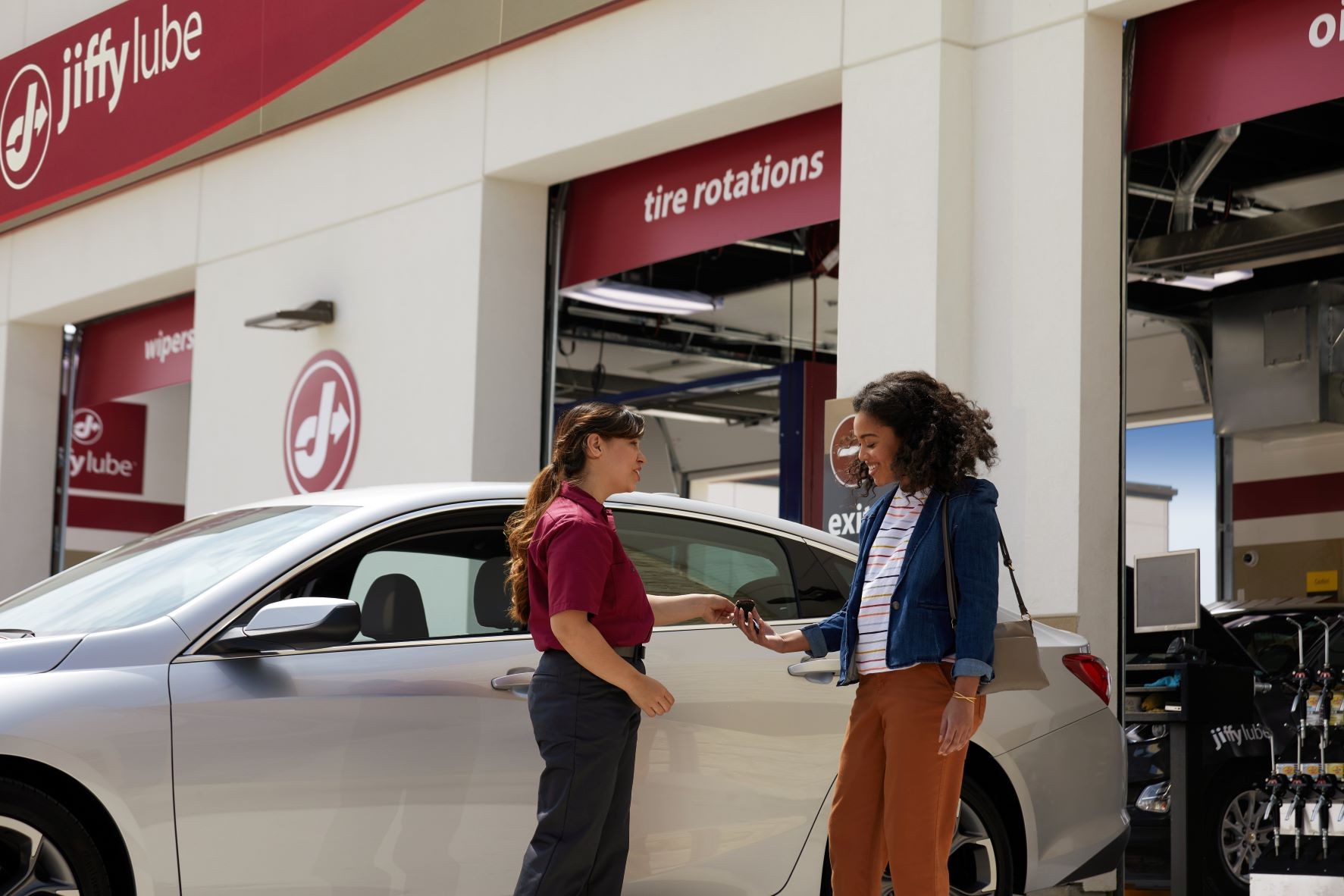Modern vehicles are marvels of engineering, packed with sophisticated computer systems that control everything from the engine to the brakes. When something goes wrong, these systems often trigger warning lights on your dashboard, signaling the need for attention. This is where a car diagnostic test becomes invaluable. But where can you get a car diagnostic test done to accurately pinpoint the problem and get your vehicle back on the road?
Understanding where to go for a car diagnostic test is crucial for every car owner. This article will explore the various options available, helping you make an informed decision based on your needs, budget, and the type of vehicle you drive.
Understanding Car Diagnostic Tests
Before diving into locations, let’s briefly understand what a car diagnostic test entails. Essentially, it’s a digital health check for your vehicle. Modern cars have an onboard computer system that monitors various components and systems, including the engine, transmission, emissions, brakes, and more. When an issue arises, the system generates a Diagnostic Trouble Code (DTC) and often illuminates the Malfunction Indicator Light (MIL), commonly known as the “check engine light.”
A diagnostic test involves connecting a specialized scanner to your car’s computer port. This scanner reads the DTCs and other data, providing technicians with insights into potential problems. This digital analysis helps identify malfunctions early, often before they escalate into costly repairs or safety hazards.
 A friendly female mechanic explains car diagnostic test results to a customer at an auto repair shop, highlighting the importance of professional vehicle maintenance.
A friendly female mechanic explains car diagnostic test results to a customer at an auto repair shop, highlighting the importance of professional vehicle maintenance.
Top Locations for Car Diagnostic Tests
When your check engine light illuminates or you experience drivability issues, you have several options for getting a car diagnostic test. Each location offers different levels of expertise, convenience, and cost.
1. Dealerships
Pros:
- Specialized Expertise: Dealerships are experts in their specific vehicle brands. Their technicians are factory-trained and possess in-depth knowledge of your car’s systems.
- Advanced Equipment: Dealerships typically have access to the most up-to-date diagnostic tools and software specific to the vehicles they sell and service.
- Warranty Work: If your car is still under warranty, a dealership is often the required place for diagnostic tests and repairs covered by the warranty.
Cons:
- Higher Cost: Dealerships generally have higher labor rates compared to independent shops or auto parts stores. Diagnostic tests can be more expensive.
- Less Convenient: Dealerships may require appointments and could be less flexible with scheduling compared to local shops.
Best for: Vehicles under warranty, complex issues requiring brand-specific expertise, and owners prioritizing specialized service over cost.
2. Independent Repair Shops
Pros:
- Lower Cost: Independent repair shops usually offer more competitive pricing for diagnostic tests and repairs compared to dealerships.
- Personalized Service: You often develop a relationship with a local independent shop, receiving more personalized attention and potentially building trust with a specific mechanic.
- Convenience and Flexibility: Independent shops can be more flexible with scheduling and may offer quicker turnaround times.
- Broad Expertise: Many independent shops employ experienced technicians capable of working on various makes and models.
Cons:
- Varied Expertise: The level of expertise can vary between independent shops. It’s important to choose a reputable shop with experienced and certified technicians.
- Equipment Limitations: Some smaller independent shops might not have the latest or most specialized diagnostic equipment for all vehicle types.
Best for: Out-of-warranty vehicles, routine diagnostic checks, owners seeking cost-effective solutions and personalized service, and those with established relationships with trusted local mechanics.
3. National Auto Service Chains (e.g., Jiffy Lube, Firestone, Pep Boys)
Pros:
- Convenience and Accessibility: National chains have numerous locations, making them easily accessible in most areas.
- Standardized Services: These chains offer standardized services and often have consistent pricing for basic diagnostic tests.
- Promotional Offers: Sometimes offer promotional deals or discounts on diagnostic services.
Cons:
- Variable Expertise: Technician experience and expertise can vary between locations within a chain.
- Focus on Routine Services: While they offer diagnostic tests, their primary focus might be on routine maintenance services like oil changes and tire rotations. For complex issues, specialized shops might be better suited.
- Upselling Potential: Be aware of potential upselling for additional services or repairs after the diagnostic test.
Best for: Quick and convenient diagnostic checks, basic drivability issues, owners familiar with and trusting of national service chains.
4. Auto Parts Stores
Pros:
- Free Basic Scan (DTC Reading): Many auto parts stores like AutoZone, Advance Auto Parts, and O’Reilly Auto Parts offer free basic diagnostic scans, meaning they will read the DTC codes for you.
- Cost-Effective for Simple Issues: If the diagnostic test reveals a simple and easily identifiable issue (e.g., a faulty sensor that the code directly points to), you can purchase the replacement part directly from the store.
Cons:
- Limited Diagnostic Capability: Auto parts store scans are typically limited to reading DTCs. They don’t usually offer in-depth analysis or pinpoint the root cause of complex problems.
- No Repair Services: Auto parts stores primarily sell parts; they do not offer repair services. You’ll need to take the diagnostic information elsewhere for repairs.
- Potential for Misdiagnosis: Relying solely on a basic DTC reading without professional interpretation can sometimes lead to misdiagnosis or incomplete repairs.
Best for: Quickly checking the check engine light for basic codes, DIY enthusiasts who want to identify simple issues themselves, and those seeking a free initial assessment before seeking professional repair.
5. DIY Car Diagnostic Tools
Pros:
- Convenience and Control: You can perform diagnostic tests at your convenience, whenever you need to.
- Cost Savings (Long Term): If you regularly diagnose and repair your own vehicles, investing in a DIY scan tool can save money on diagnostic fees in the long run.
- Learning Opportunity: DIY diagnostics can be a learning experience, helping you understand your car’s systems better.
Cons:
- Initial Investment: Purchasing a quality DIY scan tool requires an upfront investment.
- Technical Knowledge Required: Effectively using diagnostic tools and interpreting the data requires some automotive knowledge and technical skills.
- Limited Capability of Basic Tools: Entry-level DIY tools might have limited capabilities compared to professional-grade equipment.
- Risk of Misdiagnosis or Damage: Incorrect interpretation of diagnostic data or improper repairs can lead to further problems or damage.
Best for: Experienced DIY mechanics, car enthusiasts with technical skills, those who want to regularly monitor their vehicle’s health, and those comfortable with automotive technology.
Factors to Consider When Choosing a Location
When deciding where to get a car diagnostic test done, consider these key factors:
- Complexity of the Issue: For simple issues (like a check engine light with no noticeable drivability problems), a free scan at an auto parts store or a quick test at a national chain might suffice. For complex or intermittent problems, or if you experience significant drivability issues, a dealership or reputable independent shop with advanced diagnostic capabilities is recommended.
- Vehicle Age and Warranty: For vehicles under warranty, dealerships are usually the primary choice. For older, out-of-warranty vehicles, independent shops or DIY options might be more cost-effective.
- Budget: Diagnostic test costs vary. Auto parts stores offer free scans (basic DTC reading), national chains and independent shops are generally more affordable than dealerships for comprehensive diagnostics. DIY tools require an initial investment but can save money over time.
- Expertise and Trust: Consider the expertise and reputation of the technicians. Dealerships specialize in their brands, while reputable independent shops often have experienced and certified technicians for various makes. Read online reviews and ask for recommendations.
- Convenience and Time: National chains and local independent shops often offer more convenient scheduling and quicker turnaround times than dealerships. DIY is the most convenient in terms of timing, but requires your own time and effort.
What to Expect During a Car Diagnostic Test
Regardless of where you choose to go, a typical car diagnostic test involves:
- Connecting the Scanner: A technician will connect a diagnostic scanner to your car’s OBD-II port, usually located under the dashboard.
- Reading DTCs and Data: The scanner reads Diagnostic Trouble Codes (DTCs) and other relevant data from your car’s computer system.
- Analyzing the Results: The technician analyzes the data to identify potential problems and their root causes.
- Explanation and Recommendations: The technician will explain the diagnostic results to you, discuss potential issues, and recommend necessary repairs or further inspections.
- Estimate (if needed): If repairs are recommended, the service provider should provide you with a written estimate before proceeding with any work.
Conclusion: Choosing the Right Diagnostic Location for Your Needs
Where can I get a car diagnostic test done? The answer depends on your specific situation.
- For warranty work or brand-specific expertise, dealerships are the go-to option.
- For cost-effective and personalized service, reputable independent repair shops are excellent choices.
- For quick and convenient checks, national auto service chains offer accessibility.
- For basic code reading and DIY enthusiasts, auto parts stores offer free scans and parts.
- For experienced DIYers wanting control, investing in DIY diagnostic tools can be beneficial.
No matter where you choose, addressing car problems promptly through diagnostic testing is crucial for maintaining your vehicle’s health, ensuring your safety, and preventing more expensive repairs down the road. Don’t ignore warning lights – get your car checked!

